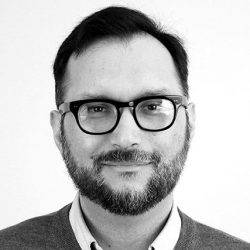I’m doing my best to avoid that cliche, pamphlet-fodder question, “What are the Unitarian Universalists?” It may not be a meaningful or knowable question anymore, and the answer usually says more about who’s answering than it ought. Instead, I’ll ask other questions; first, where are they found? Where is this community found?
Conventionally, this would answered in three ways:
- In congregations, which communicate and cooperate with one another.
- In the systems of the Unitarian Universalist Association, which supports the congregations and takes on work too difficult for a particular congregation to do, including gathering large deliberative and collaborative meetings. (More about that later.)
- In purpose-driven special-purpose organizations, though most of these perished after the UUA purge of the independent affiliates in 2007. Professional organizations continue, as do some of the “independent disaffiliates” though it’s hard to read their strength. I’m guessing the musicians and the camps are in the best shape.
Historically, there’s been a shifting balance of power between the churches and the central denominational body. The Universalists formally had a strong center, but didn’t seem to exercise it (perhaps it couldn’t) while the Unitarians were more decentralized on paper but had very strong, central leadership, down to matters of ministerial recognition and settlement, even church building designs. My point is that the relationship and relative strength between these three pillars changes, often having to do with finances.
But as I was thinking about this article, two other locations for Unitarian Universalists came to mind:
- Those churches that do their own thing and have their own ways and you never hear from. (I belong to one of those.) 24 Farnsworth might be sucked into a black hole and it would take months or years for these churches to notice. It’s easy to imagine they’re like the maineline UUs, but my own experience with the Christian version of this phemomenon tells me this isn’t so.
- Those “shadow Unitarian Universalists” who show up on surveys of religious affiliation, who if the numbers were to be believed would be as numerous as those recorded in UUA-member churches. Still not sure what to make of that, but they shouldn’t be forgotten.


Five real-world anecdotes that address the question of what you call “shadow UUs,” suitably anonymized to protect privacy:
(1) The person who grew up UU, still lives near their childhood UU church, still considers themselves a UU, but no longer feels a connection to their childhood church (for good reason, to be honest)
(2) The person who is a long-time member of a UCC church, as that’s the closest liberal church, they’re not going to join a new church but they really feel themselves to be a UU
(3) Person who grew up UU, still considers themselves UU, but lives two hours from nearest UU congregation. This person has no interest in CLF, as for them UUism is an in-person religion
(4) Person who was a regular participant in UU district and continental youth conferences, did not make the transition to a local UU church, and instead belongs to a loose religious community (not a congregation) that is UU in all but name
(5) Person who grew up UU, is not interested in their local UU congregation, but maintains a close connection to an annual UU summer camp program (and has made major financial donations to non-congregational UU institutions)
These are actual people that I’ve met across the US. Each of them considers themselves a UU, but since they’re not members of a UU congregation, they’re not “official” UUs. As far as I’m concerned, they’re UUs. I wouldn’t even call them “shadow UUs.” I’d call them UUs that don’t get counted due to the archaic membership counting system we use.
I’ve been hesitant to reply to this post. I’m puzzled by what it means to “be Unitarian Universalist” if one does not participate in community life. Is it just a very individualistic identity that one gets to assert outside of any relationship or commitment to other people? Is it just a theological game of solitaire?
I can see the integrity of the person who participates deeply in an annual camp program, but who doesn’t take part in a congregation. But what about the person who just stays home, does their own thing, and simply calls themselves Unitarian Universalist?
I think in any healthy spirituality there needs to be an interplay of individual practice, and community practice. Otherwise one risks having a God inside your head who always agrees with what you already think. Some measure of community (often congregational) life builds in structural challenges to that mode idolatry. Puzzled. And perhaps a bit concerned as we live in an era that is dysfunctional with very high levels of isolation and polarization.